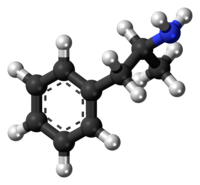
Photo from wikipedia
Importance Family-based weight loss treatment (FBT) is considered the gold-standard treatment for childhood obesity and is provided to the parent and child. However, parent-based treatment (PBT), which is provided to… Click to show full abstract
Importance Family-based weight loss treatment (FBT) is considered the gold-standard treatment for childhood obesity and is provided to the parent and child. However, parent-based treatment (PBT), which is provided to the parent without the child, could be similarly effective and easier to disseminate. Objective To determine whether PBT is similarly effective as FBT on child weight loss over 24 months. Secondary aims evaluated the effect of these 2 treatments on parent weight loss, child and parent dietary intake, child and parent physical activity, parenting style, and parent feeding behaviors. Design, Setting, and Participants Randomized 2-arm noninferiority trial conducted at an academic medical center, University of California, San Diego, between July 2011 and July 2015. Participants included 150 overweight and obese 8- to 12-year-old children and their parents. Interventions Both PBT and FBT were delivered in 20 one-hour group meetings with 30-minute individualized behavioral coaching sessions over 6 months. Treatments were similar in content; the only difference was the attendance of the child. Main Outcomes and Measures The primary outcome measure was child weight loss (body mass index [BMI] and BMI z score) at 6, 12, and 18 months post treatment. Secondary outcomes were parent weight loss (BMI), child and parent energy intake, child and parent physical activity (moderate to vigorous physical activity minutes), parenting style, and parent feeding behaviors. Results One hundred fifty children (mean BMI, 26.4; mean BMI z score, 2.0; mean age, 10.4 years; 66.4% girls) and their parent (mean BMI, 31.9; mean age, 42.9 years; 87.3% women; and 31% Hispanic, 49% non-Hispanic white, and 20% other race/ethnicity) were randomly assigned to either FBT or PBT. Child weight loss after 6 months was −0.25 BMI z scores in both PBT and FBT. Intention-to-treat analysis using mixed linear models showed that PBT was noninferior to FBT on all outcomes at 6-, 12-, and 18-month follow-up with a mean difference in child weight loss of 0.001 (95% CI, −0.06 to 0.06). Conclusions and Relevance Parent-based treatment was as effective on child weight loss and several secondary outcomes (parent weight loss, parent and child energy intake, and parent and child physical activity). Parent-based treatment is a viable model to provide weight loss treatment to children. Trial Registration Clinicaltrials.gov Identifier: NCT01197443
Journal Title: JAMA Pediatrics
Year Published: 2017
Link to full text (if available)
Share on Social Media: Sign Up to like & get
recommendations!